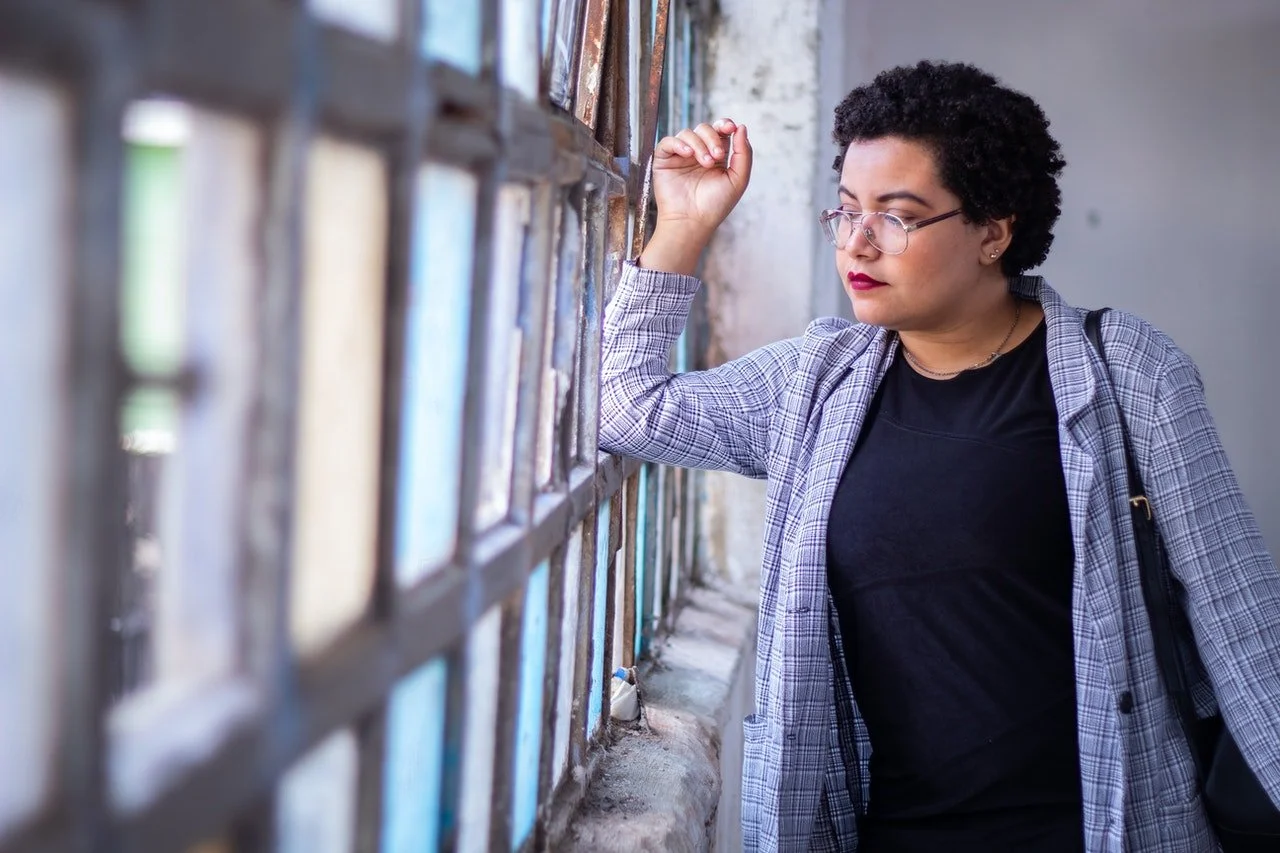With the ever-growing awareness and celebration of Juneteenth, let it shine as an example of what’s possible through our collective diversity. Let Juneteenth, and the evolutions of music and culture that it has inspired, be something we all celebrate.
Read MoreThe opera, written by Pulitzer Prize-winning composer Anthony Davis, debuted in 1986. This new performance will be staged just a short distance from the house in the Roxbury neighborhood where Malcolm X (1925-1965), born Malcolm Little, lived during his formative adolescence.
Read MoreEach episode of Represent Classical's “Conversations” series features in depth interviews with industry leaders, notable musicians, movers, shakers, and innovators.
Featured in this episode: Nnenna Ogwo – pianist and Founder and Artistic Director of JuneteenthLP
Read MoreDo you remember the first time you went to go see a live production of an opera? Maybe it was during a school field trip, or for a date that you wanted to impress. I’ve met people whose first experience in an opera house was born out of a pure curiosity that led to the purchase of a ticket.
Everyone has a different story about their introduction to this art form, but what isn’t engaged as much is the residual emotional impact of said introduction. For me, the introduction came by way of performing on the stage, but I wasn’t able to measure the emotional impact opera had on me until I engaged opera as an audience member.
Read MoreThe new “2022 Orchestra Repertoire Report” says that over the last several years there’s been an increase in how often American orchestras perform works by composers of color, women composers, and living composers. The report also examined programming trends dating back from 2015 to the current season.
The study was produced by SUNY Fredonia’s Institute for Composer Diversity, in partnership with the League of American Orchestras, with support from the Sphinx Organization’s Venture Fund. Data for the study was gathered from season announcements and the websites of medium and larger budget orchestras.
Read MoreA musical rebirth and celebration, Phoenix Rising takes a cross-section of Silkroad’s award-winning compositions and arrangements and re-imagines them for today. With this in mind, members of the Silkroad Ensemble and Giddens collaborated on new works that coalesce Giddens unique worldview with the Ensemble’s collective experience during the pandemic.
Phoenix Rising will unveil three new commissions by Silkroad artists Sandeep Das, Maeve Gilchrist, and Kaoru Watanabe. The program also includes new arrangements by Rhiannon Giddens, Colin Jacobsen, Edward Pérez, and Mazz Swift.
Giddens and 13 Silkroad artists will visit venues in Massachusetts, New Hampshire, New Jersey, New York, Rhode Island, and Virginia.
Read MoreFounded by Jennifer Arnold, Alexander Laing, David A. Norville, Joy Payton-Stevens, Shea Scruggs, Weston Sprott, and Titus Underwood, the Black Orchestral Network describes itself as “a community of Black orchestral artists” who “love and care about the American orchestral community.” However, with that love comes concern. BON sees the relative lack of Black talent in professional orchestras as a huge problem and has entered the arts activism field with not only a mission, but with a call to action.
In BON’s formal call to action, the organization offers some of the context that inspired their very direct approach, namely, a 2014 statistic that highlights the fact that less than 2% of American orchestral musicians are Black.
Read MoreThe Women Composers Festival will highlight performances by dozens of women composers on May 27 at The Church of the Epiphany in Washington and May 28 at AMP by Strathmore in North Bethesda, Md.
The two-day event is hosted by Boulanger Initiative, a nonprofit whose mission is to promote music composed by women through performance, education, research, consulting and commissions. Boulanger Initiative advocates for women and all gender marginalized composers.
Read MoreAsian Musical Voices of America and PAO Arts Center present “Our Objects and Possibilities”, a concert celebrating AAPI composers and performers on Friday, May 6, 7:30 p.m. to 9:00 p.m. at the PAO Arts Center at 99 Albany Street in Boston, MA.
Works by Ken Ueno, Iman Habibi, JungYoon Wie, and Michael Thomas Foumai will be featured.
Performers include violinists Lucia Lin, Jae Lee, and Hyeyung Sol Yoon, violist Sarah Darling, cellist Leo Eguchi, and harpist Charles Overton.
Read MoreThe George Walker Center for Equity and Inclusion in Music opened April 16 at the Eastman School campus at the University of Rochester campus.
The dedication included remarks by University of Rochester President Sarah Mangelsdorf; Jamal J. Rossi, Joan and Martin Messinger Dean at Eastman; Ian and Gregory Walker, sons of George Walker, and others, as well as performances of Walker’s chamber music works.
Read MoreSNL has pushed ahead in making sure it stays competitive by inviting crowd favorites to its stage, with the latest being Melissa Viviane Jefferson, known by most people as Lizzo, who hosted the show on April 16. With her flute always close by, Lizzo’s opening monologue, her pair of incredible, full-bodied musical performances, and her natural ability to make people laugh gave SNL yet another reason to believe in the power of engaging the “now”.
Through it all, the flute traveled with her, and remains a vital part of her musical identity. To date, Lizzo’s unique approach to music has had broad impact, with much of her work inspiring body positivity, emotional health, and in the latest episode of SNL: an indictment of western classical music.
Read MoreRepresent Classical’s popular video series, CONVERSATIONS, is now available to listen to on Spotify.
Hosted by Christine S. Escobar, Founder and Editor of Represent Classical, each episode of “CONVERSATIONS” features in depth interviews with industry leaders, notable musicians, movers, shakers, and innovators in classical music and related genres.
Stay tuned for Season 2 beginning in late spring with more insightful and thought-provoking discussions on the change that musicians of color are creating in the music industry.
Read MoreThe Dream Unfinished is one of numerous grassroots, activist orchestras that have emerged in recent years across the country. Their existence is a form of resistance against mainstream classical institutions that have been slow to change and diversify.
The concert, organized by arts administrator and clarinetist, Eun Lee, was a direct response to the killing of Eric Garner at the hands of New York police. Held at Centennial Memorial Temple in New York, the performance featured music by activist composer Leonard Bernstein and William Grant Still, considered the “dean” of African American composers, and speeches by activists including Garner’s daughter, Erica. Proceeds from ticket sales went to the Center for Constitutional Rights, Justice League NYC, and the National Coalition of Law Enforcement Officers for Justice.
Read MoreAccording to a newly published report by SMU Data Arts, unemployment in the arts doubled that of the national average in the U.S., with BIPOC individuals and those with disabilities bearing the brunt of the impact.
Although employment returned for some workers of the arts sector, this recovery appears to have been virtually nonexistent for BIPOC and disabled workers.
Read MoreThe Dessoff Choirs celebrates the late African American composer Margaret Bonds, at the Church of the Heavenly Rest, in New York City, on April 28 at 7:30 p.m., a pre-concert talk begins at 6:45 p.m.
Born in Chicago, Margaret Bonds (1913-1972) was a pianist, a composer, an arranger, and a music teacher. She was one of the first Black composers and performers to gain popular recognition in the U.S., being the first Black soloist to perform with the Chicago Symphony Orchestra. She was also a strong fighter for civil rights, and is remembered for her arrangements of African American spirituals.
The Dessoff Choirs concert features the New York premieres of the orchestral versions of two neglected Bonds cantatas: Credo inspired by a W.E.B. Du Bois essay, and Simon Bore the Cross (edition by Malcolm J. Merriweather), a collaboration with Langston Hughes.
Read MoreChart-topping artists like Lil Nas X walked away empty handed, but people like Jazmine Sullivan and Doja Cat reaffirmed their footing with fans, and the Recording Academy, by taking home the highly coveted trophy in their respective categories. Even the biggest award, the Grammy for “Album of the Year”, went to Jon Batiste, who himself seemed to be surprised when his name was called, making him the 11th Black artist to win this award in Grammy history.
With these, and several other Black artists taking home awards, it would seem that the Recording Academy is paying close attention to the continued push for more Black representation in the way these awards are distributed, but a closer look shows there is still a high level of marginalization toward Black artists that many people ignore in light of the success of a select few.
Read MoreWith just under one month to go until their groundbreaking Carnegie Hall season feature on Sunday April 24, the Gateways Music Festival Orchestra, composed entirely of Black musicians, will perform for a capacity audience as tickets for the concert are nearly sold out.
The 7 day Gateways Music Festival, which runs from April 18 to 24, consists of two full orchestra concerts, six chamber music performances, two piano recitals, two film screenings, two lectures, a panel discussion, a Young Musicians Institute, and an “after hours” jam session.
Read MoreDiversity, equity, and inclusion, as engaged by arts institutions across the country, have centered performers, but what about audience members? With a few exceptions (including the diverse audience turnout for the Metropolitan Opera’s “Fire Shut Up In My Bones”), opera audiences remain predominantly white.
The creation of a fictional, white character in “Emmett Till” for the sake of affirming the feelings of these predominantly white audiences is not only a perpetuation of a status quo that countless arts administrators, advocates, and activists work to dismantle, but a celebration of it.
Read MoreRC Editor Christine S. Escobar speaks with Brendan Slocumb in the latest installment of “Conversations” on finding opportunity, building habits for practice and discipline, and “The Violin Conspiracy”.
Each episode of Represent Classical’s “Conversations” series features in depth interviews with industry leaders, notable musicians, movers, shakers, and innovators.
Brendan Slocumb is violinist, music educator, conductor, and author.
Read MoreEveryone that I’ve talked to has some relationship in the music world to Suzuki. Their teacher was trained in it or their parents were involved in it. Everyone is like one person removed at most from Suzuki. To me, it was such a huge opportunity to connect with the organization, and to really build on its history. The Suzuki model and the Suzuki philosophy is founded on this idea that music can be a tool for developing youth, instead of music being just kind of this gift that we give to people. We're using music as a tool for young people to understand themselves, to understand how they want to contribute to society, to understand how to connect with each other, to connect with their families.
Read More



















